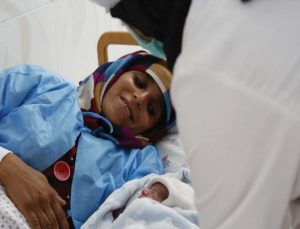
Conducted by Jhpiego as part of USAID funded HEMAYAT project in Afghanistan.
This qualitative study on Experiences and Expectations of Childbirth at Health Facilities in Afghanistan was designed to generate information to inform the Ministry of Public Health (MoPH) and development partners’ efforts to eliminate mistreatment and ensure quality respectful care in maternal and newborn health (MNH) care services. The study objectives were to understand:
- Women’s perception of MNH services
- Healthcare providers’ perception of women’s right, drivers for mistreatment and elements of RMC
- Key informants’ perception of women’s right, drivers for mistreatment and elements of RMC
Eight focus group discussions were conducted with women and healthcare providers (skilled birth attendants) in Balkh, Kandahar, Herat and Nangarhar, key informant interviews were conducted with selected MoPH and NGO staff responsible for implementation of the Basic Package of Health Services. Thematic analysis using analytical codebook was developed with deductive codes based on the study objectives and types of mistreatment as well as tools from similar studies and global literature,
Key findings included descriptions of what women’s wish for such as clean, safe and secure delivery rooms, privacy, drugs, companionship and the presence of kind and supportive midwives and doctors. Women are deterred from giving birth in health facilities by female relatives, feeling shamed, unpleasant past experiences of mistreatment, discrimination and nepotism. These findings were validated by the providers who noted other barriers to facility birth including family restrictions and traditions, insecurity, economic barriers and lack of awareness. Providers are aware of mothers’ rights to respectful care but are typically working with various health system constraints such as small delivery rooms, shortage of drugs, excessive workload, lack of competence in certain areas, lack of inter-professional collaboration and teamwork when required. None of the key informants were fully aware of clients rights related to RMC such as freedom from harm and ill treatment, right to information and informed decisions, equality and equity. They made suggestions on how to improve RMC emphasizing compliance with standards, reward and recognition systems, improved monitoring services and ensuring the Afghan Medical Council (AMC) and Afghanistan Midwifery and Nursing Council (AMNC) as regulatory bodies improve provider accountability.
Underpinning the key findings were socio-cultural factors related to gender and a fragile health system affecting both providers and the women. Although the providers do wish to support the women and provide respectful care there was evidence that mistreatment during childbirth is normalized and may not be considered a problem. This along with other barriers needs to be addressed in comprehensive quality improvement efforts as well as ensuring women and providers are aware of rights based care.